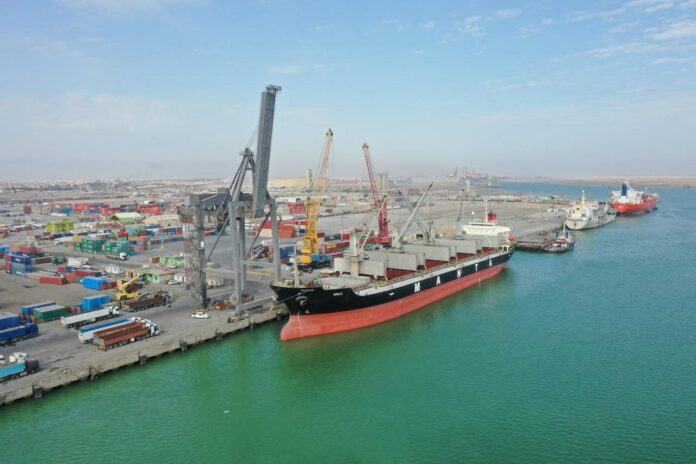Dr. Adnan Farhan Al-Jourani, Department of Economics/ College of Administration and Economics, University of Basra.
Executive Summary:
- Improving the efficiency of Iraqi ports reduces trade costs, increases added value, creates new business, and attracts certain economic sectors. It also helps to support and assure economic and political independence and lowers the costs of imported goods, consumer goods, and raw materials, thus increasing the competitiveness of the country’s exports.
- Iraqi commercial ports play a limited role in economic development; For many factors, the most important of which is the heavy dependence on oil, which accounts for more than two-thirds of the gross domestic product, 95% of government revenues, and 99% of its total exports, in addition to the fact that Iraqi ports are of low capacity and are characterized by the lack of advanced systems used in management and governance.
- According to the port quality index ranking in terms of logistical performance, and according to the World Bank report for the year 2018, Iraqi ports ranked 159 in the world, while the ports of the Emirates ranked in sequence 14, Qatar 30, and Kuwait ranked 59 in the world.
- One of the most prominent challenges facing Iraqi ports is the lack of funding, and the central management of these ports without the local government of Basra Governorate having a role in planning and managing the conditions of these ports, as well as the lack of investments allocated in equipment that did not exceed 2% of the total investments allocated to the transport sector.
- The current capacities of Iraqi ports are not able to absorb future demand, so the acceleration of the establishment of the Grand Faw Port is a necessary requirement for the ability to absorb future demand and to compete with the ports of neighboring countries.
- In addition, work must be done to develop the capabilities of the two ports (Umm Qasr and Khor Al Zubair) in particular by using modern technology in loading and unloading, thus reducing the waiting time. As well as establishing and expanding the current storage areas, cleaning the waterways of sediment and marine obstructions, and increasing the depths of the navigation channel to approximately 15-16 meters to receive large ships and container ships.
Introduction:
Basra Governorate has a distinguished geographical location as it overlooks the Arabian Gulf across its southern part through a narrow coastal strip of 65km2, and also through the Shatt al-Arab, which consists of the confluence of the Tigris and Euphrates rivers -Its length, from its entry point to Iraq to its mouth in the Arabian Gulf, is 139.1 km-, which is suitable for ships navigation, which gave the opportunity for the various means of river and sea transport to cross the Iraqi territorial waters in the Governorate. These means varied between various local means of transportation, and international marine transportation means represented by ships entering the waters of Basra Governorate, and a large part of them reached the port of Al-Maqal in the center of Basra city.
Maritime transport is the hub of international trade, and one of the main drivers of globalization, as it transports nearly 80% of the volume of world trade, and more than 70% of the value of this trade that is handled in global ports, and these shares are even higher in most developing countries.
Maritime transport has developed very dramatically over the past five decades, which has led to a change in the picture of the global economy. Between 1950 and 1995, transport grew from 0.55 billion tons to 4.3 billion tons, and continued to grow, reaching 8.7 billion tons in 2011.
This led to the maritime industry becoming one of the fastest-growing economic sectors after World War II economy, and ports becoming an essential means of integration into the global economy.
In addition, the transport sector is one of the driving sectors of the economy in any country, and economic development is directly related to the development of the transport sector.
The Iraqi maritime sector has faced many conditions that have greatly hampered its work. Such as the war between Iraq and Iran from 1980-1988 “The First Gulf War”, then the second Gulf War in 1991, and then the economic sanctions from 1991-2003, and then came the third Gulf War in 2003. Then, after 2003, corruption negatively affected productivity and efficiency and its share in the development of the Iraqi economy, which led to a significant decline.
This paper aims to analyze the current situation of the maritime sector in Iraq, and to clarify the economic importance of ports to improve their efficiency, by answering the following two questions: First: Is there a vital role for Iraqi ports in the economy? Second: What are the most important challenges facing the Iraqi maritime sector?










